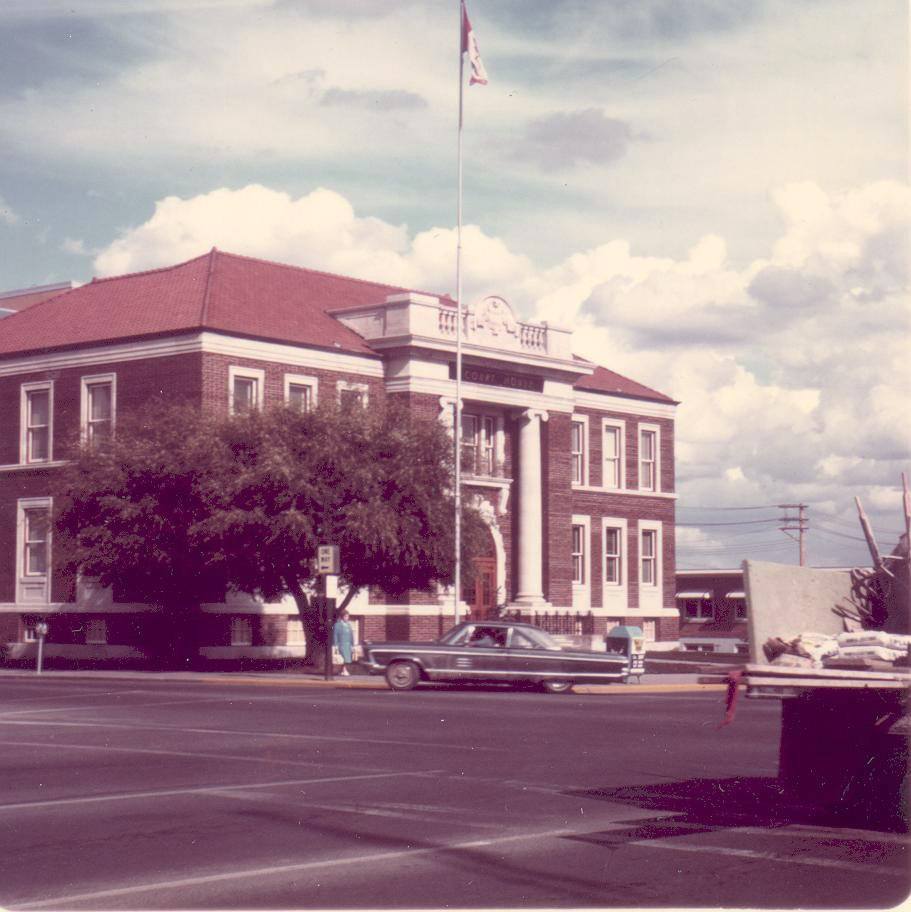Murders, particularly mass murders, have always received enormous public attention. One of the most infamous mass murders in Central Alberta’s history occurred 50 years ago in 1959.
Raymond Cook, his wife Daisy, and five young children were brutally murdered on June 26, 1959 in Stettler, Alberta. Raymond Cook’s son, Robert Raymond Cook, was subsequently convicted of the crime in two different trials. He ultimately became the last person in Alberta to be legally hanged.
Robert Cook had a very troubled childhood. Born on July 15, 1937 in Hanna, Alberta, his mother died when he was a young boy. His father subsequently remarried in 1949 and had a new family of five children.
Robert did not get along with his stepmother. He was also frequently in trouble with the law. He was jailed in 1953 and was re-jailed for another crime less than two weeks after his release. In 1957, he was jailed for a third time for a robbery at the Bowden Treasury Branch.
In late June, 1959, Robert was released early as part of a special amnesty to mark the visit of Queen Elizabeth to Canada. He went home to Stettler, but what happened next was unclear.
Robert showed up in Edmonton with his father’s station wagon, which he traded for a white Impala convertible at Hood Motors. He did not complete all the necessary paperwork for the new car and was later picked up by police in Stettler.
His stories about what he was doing with the car and some of his family’s belongings did not add up to police. He was charged with obtaining the convertible under false pretences as he had used his father’s identification for the deal.
When the RCM P went to the Cook house to check matters out, they made a gruesome discovery. After noticing spatters of blood in the empty house, they then discovered the seven bodies of the Cook family in the grease pit in the garage.
Robert was quickly charged with murder. However, he vigorously protested his innocence. He correctly stated that his father had planned to move out of town and buy a garage business. He even claimed he had given his father $4,300 for the venture, money which Robert had presumably stashed from the Bowden robbery. His stories about how he ended up with the car and why he traded it for a convertible were much less credible.
Robert was sent to the Ponoka Mental Hospital for a psychiatric assessment. However, he soon made an amazing and rather mysterious escape from the high security unit where he was being held. He later claimed that he had escaped because he had been denied permission to attend his family’s funeral.
A massive manhunt ensued. Many people across Central Alberta were in a panic with an alleged mass murderer being at large somewhere in the community. After stealing two cars and smashing one up in a dramatic, but unsuccessful, police chase, Robert was eventually apprehended hiding on a farm near Bashaw.
After being held in the Bashaw RCMP Station, and then sent to Stettler for a preliminary hearing, Robert stood trial in the old Red Deer Court House at the end of November, 1959. Robert claimed that he could not have murdered his family because he was occupied, at the time, breaking into a dry cleaners in Edmonton. He also offered the theory that someone looking for the loot from the Bowden robbery had murdered his family. The jury was unconvinced. Robert was convicted of murder on Dec. 10, 1959.
A request for a new trial to the Alberta Court of Appeal was successful. However, Robert was reconvicted at a new trial in Edmonton. Appeals to the Federal Court and to the Federal Solicitor General were unsuccessful. Robert Raymond Cook was hanged at the Fort Saskatchewan prison on Nov. 14, 1960.
Because Robert was convicted and executed on circumstantial evidence, the case has long been debated in the media and in two different books. The gruesomeness of the murder and the drama of Robert’s escape from the Ponoka Mental Hospital have helped maintain the public memory of the events.
On Sept. 2, 3 and 4, 2010, an excellent play on the Cook murder trial, The End of the Rope, will be performed at the Majestic Theatre in Bashaw. Tickets for the performances are $20 and can be obtained by contacting the Bashaw Historical Society at 403-784-3437 or by stopping by the Bashaw Neighborhood Place.



